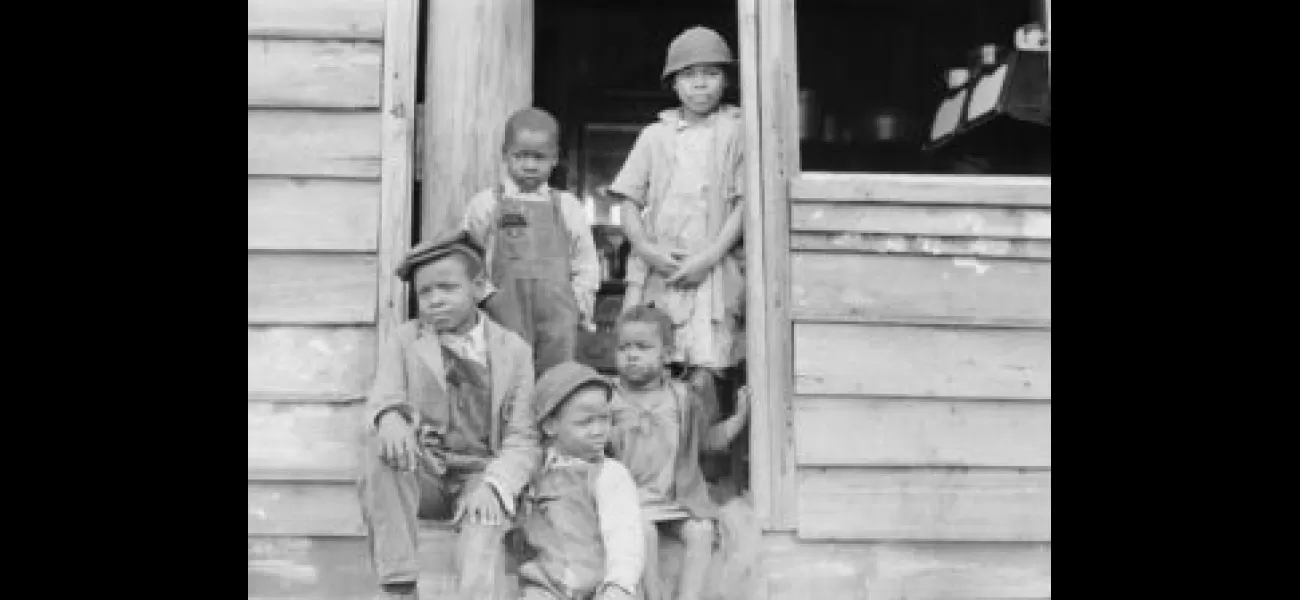Southern Black families are fighting to reclaim ownership of their land.
Heirs' property leads to black land loss as it lacks a will to secure its stay in the family.
October 16th 2023.

In 2019, ProPublica profiled the story of Melvin Davis and Licurtis Reels, two brothers from North Carolina, who fought to keep their land out of the hands of white developers, as per the dying wish of their grandfather, Mitchell Reels. The land was passed down to them through a customary practice in the South known as "heirs' property," the assumption being that even without a will, the land would remain in the family. However, the brothers quickly realized that the reality was much more complicated.
After eight years of struggle, the brothers were found guilty of civil contempt for their attempts to keep the land in their hands, and were sentenced to time in prison. A similar battle unfolded in 2012, as the Robinson family in Alabama fought to keep the land they had inherited from their grandfather, Joe Ely. Unbeknownst to them, James E. Deshler had purchased 1/15 of the land, and was now suing them for control.
Ray Winbush, Director of the Institute for Urban Research at Morgan State University, believes that the desire for land owned by black people, particularly black men, was the motivation behind many of the lynchings that took place in the South. He told ProPublica, "There is this idea that most blacks were lynched because they did something untoward to a young woman. That's not true. Most black men were lynched between 1890 and 1920 because whites wanted their land."
David Cecelski, a historian of the North Carolina coastal area, echoed this sentiment in his discussions with ProPublica. He shared, "You can't talk to an African-American family who owned land in those counties and not find a story where they feel like the land was taken from them against their will, through legal trickery."
Mitchell Robinson, the head of the Robinson family, knew that this legal trickery was being used against them, but he was determined not to let the land slip through their fingers. He rallied 40 of his relatives to form a land retention committee, which provided them with the time they needed to fight the lawsuit. He explained to Essence, “I didn’t want three or four generations from now for some member of the family to say, ‘Didn’t we have over 100 acres of land?’ I didn’t want someone to say, ‘That generation didn’t fight to keep the land in the family.’ So we adopted this motto of- Not on our watch.”
In August 2023, a judge ruled in the Robinson family’s favor, and they were able to take back the portion of the land Deshler had once laid claim to. Mitchell Robinson was elated as he realized the significance of the victory. He shared, “To me, it had even more meaning that people were enslaved on that land, and now we owned it, and we had the opportunity to change the narrative, the legacy, and the history on that land. But it was so important for me to honor his legacy and the intent when he purchased that land. He could only dream or imagine where we are as people of color today. And I wanted to take the blood, sweat, and tears into that land and not let that die.”
The stories of the Reels brothers and the Robinson family demonstrate the importance of fighting for one’s legacy, even in the face of legal trickery. Through their courage and determination, these two families have been able to reclaim their land and rewrite the narrative of their history.
After eight years of struggle, the brothers were found guilty of civil contempt for their attempts to keep the land in their hands, and were sentenced to time in prison. A similar battle unfolded in 2012, as the Robinson family in Alabama fought to keep the land they had inherited from their grandfather, Joe Ely. Unbeknownst to them, James E. Deshler had purchased 1/15 of the land, and was now suing them for control.
Ray Winbush, Director of the Institute for Urban Research at Morgan State University, believes that the desire for land owned by black people, particularly black men, was the motivation behind many of the lynchings that took place in the South. He told ProPublica, "There is this idea that most blacks were lynched because they did something untoward to a young woman. That's not true. Most black men were lynched between 1890 and 1920 because whites wanted their land."
David Cecelski, a historian of the North Carolina coastal area, echoed this sentiment in his discussions with ProPublica. He shared, "You can't talk to an African-American family who owned land in those counties and not find a story where they feel like the land was taken from them against their will, through legal trickery."
Mitchell Robinson, the head of the Robinson family, knew that this legal trickery was being used against them, but he was determined not to let the land slip through their fingers. He rallied 40 of his relatives to form a land retention committee, which provided them with the time they needed to fight the lawsuit. He explained to Essence, “I didn’t want three or four generations from now for some member of the family to say, ‘Didn’t we have over 100 acres of land?’ I didn’t want someone to say, ‘That generation didn’t fight to keep the land in the family.’ So we adopted this motto of- Not on our watch.”
In August 2023, a judge ruled in the Robinson family’s favor, and they were able to take back the portion of the land Deshler had once laid claim to. Mitchell Robinson was elated as he realized the significance of the victory. He shared, “To me, it had even more meaning that people were enslaved on that land, and now we owned it, and we had the opportunity to change the narrative, the legacy, and the history on that land. But it was so important for me to honor his legacy and the intent when he purchased that land. He could only dream or imagine where we are as people of color today. And I wanted to take the blood, sweat, and tears into that land and not let that die.”
The stories of the Reels brothers and the Robinson family demonstrate the importance of fighting for one’s legacy, even in the face of legal trickery. Through their courage and determination, these two families have been able to reclaim their land and rewrite the narrative of their history.
[This article has been trending online recently and has been generated with AI. Your feed is customized.]
[Generative AI is experimental.]
0
0
Submit Comment





